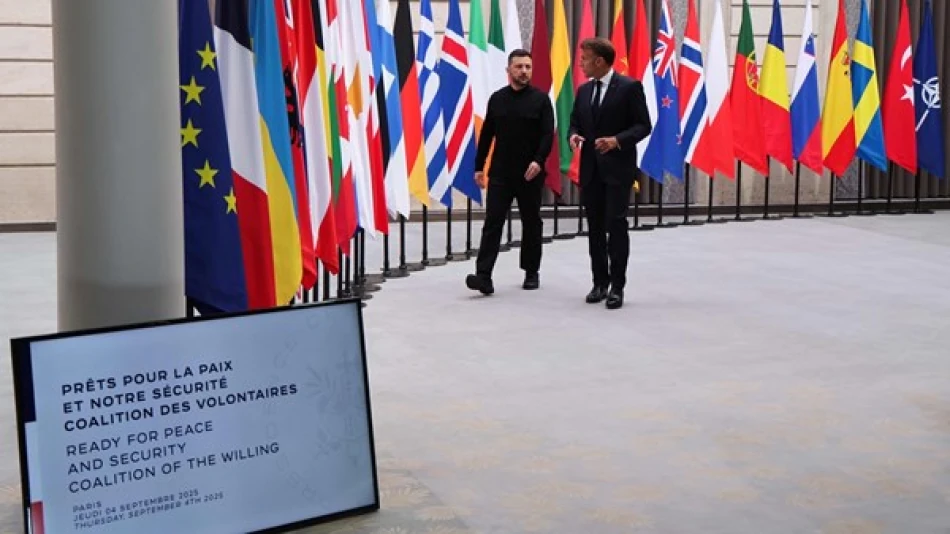
Trump and the "Coalition of the Willing" Discuss Security Guarantees for Ukraine
Trump Engages Ukraine Alliance as Peace Deal Pressure Mounts
President Donald Trump joined a video call with leaders of the 30-nation Ukraine support coalition on Thursday, marking his first direct engagement with the alliance since taking office. The call followed a Paris meeting where coalition members discussed security guarantees for Kyiv in any potential peace agreement with Moscow—a critical juncture that could reshape the trajectory of the conflict that has raged since 2022.
Coalition Scrambles to Secure Ukraine's Future
The "Coalition of the Willing," comprising nearly 30 countries—predominantly European—convened both in-person in Paris and virtually to address one of the war's most complex challenges: how to ensure Ukraine's long-term security in a negotiated settlement. The timing reflects growing urgency as diplomatic pressure builds for a resolution to the nearly three-year conflict.
Ukrainian President Volodymyr Zelenskyy met separately with Steve Witkoff, Trump's special envoy, on the sidelines of the Paris gathering. This face-to-face meeting underscores the Biden administration's transition strategy and Trump's early diplomatic positioning on Ukraine policy.
Security Guarantees: The Make-or-Break Issue
The coalition's focus on security guarantees reveals the central dilemma facing any Ukraine peace deal. Without credible deterrence mechanisms, any agreement risks becoming another "Minsk-style" ceasefire that Moscow could exploit to regroup and rearm. European leaders understand that their continent's stability hinges on getting this framework right.
NATO Membership vs. Alternative Security Models
While Ukraine's NATO membership remains the gold standard for security guarantees, Trump's participation in Thursday's discussions suggests potential alternative approaches. These could include bilateral security pacts, enhanced weapons deliveries, or a multilateral guarantee system similar to what South Korea enjoys—though without the permanent U.S. troop presence that makes Seoul's arrangement so robust.
Trump's Diplomatic Calculus
Trump's engagement with the coalition signals a more nuanced approach than his campaign rhetoric suggested. Rather than immediately cutting Ukraine loose, he appears to be positioning himself as a dealmaker who can leverage both support and pressure to achieve a settlement. This aligns with his transactional foreign policy style while acknowledging the political reality that abandoning Ukraine entirely would alienate key Republican defense hawks and European allies.
The Witkoff Factor
Witkoff's appointment as special envoy—a real estate executive rather than a traditional diplomat—reflects Trump's preference for business-minded negotiators. His meeting with Zelenskyy likely focused on what Ukraine might be willing to concede in exchange for robust security guarantees, a conversation that will prove crucial as negotiations potentially accelerate.
European Stakes and Strategic Autonomy
For European coalition members, Thursday's meeting represents both an opportunity and a test. They need Trump's engagement to make any security guarantee meaningful, but they also recognize that over-reliance on U.S. commitments leaves them vulnerable to future policy shifts. This tension is driving increased European defense spending and discussions about continental security architectures that could function with or without full American participation.
The coalition's ability to present a united front while accommodating Trump's deal-making instincts will likely determine whether Ukraine emerges from this conflict with genuine security or merely a temporary pause in hostilities.
Most Viewed News

 Layla Al Mansoori
Layla Al Mansoori






